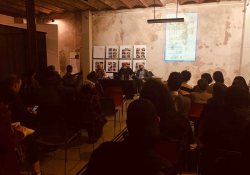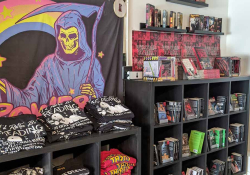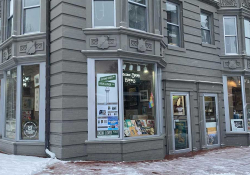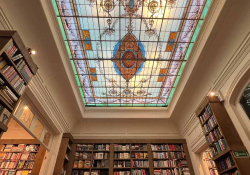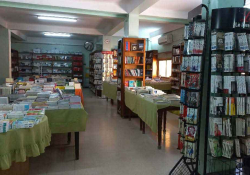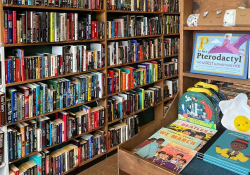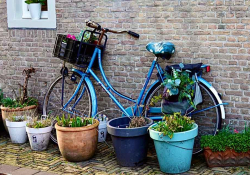The Book Lounge: Cape Town’s Resilient Indie
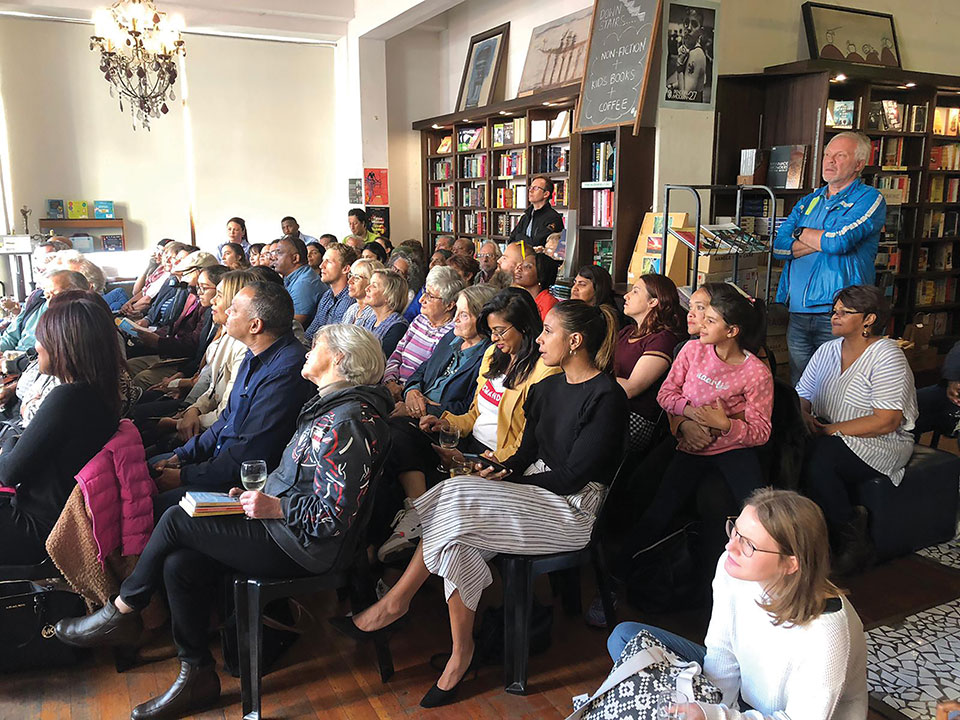
NOD A TEMPORARY ADIEU to Table Mountain in the distance as you pass beneath the shop’s wooden portico. Wait for the buzz of the gate, the mourn of its hinges as you step inside, the quiet click behind you. “Hello” to Mervyn arranging shelves and Carmen at the till. Walk along the long window, a brief pause at the fiction table when you see that book your mother mentioned. Pick it up, carry it with you down the worn wooden stairs. Order a rooibos tea, settle into your favorite green chair, slide your hand across the book’s cover—breathe, begin. You’re in the Lounge.
For thirteen years, The Book Lounge has offered refuge amidst the bedlam of kombis, car horns, and crime of Cape Town’s downtown streets. The city’s beloved indie opened its doors in December 2007, renovated from an old gallery space and a basement that was nothing more than a “hole in the ground,” as Mervyn Sloman, the store’s owner, likes to say. The Book Lounge hosts more events in a week than most stores host in a month, from book launches to socials and Saturday Storytime for young readers. It is a store that fulfills its charge to provide readers and writers access to one another tenfold, a rendezvous point not just for Capetonians but for travelers, extraterrestrials, and the like.
A good bookstore is a space for the sharing and investigation of truths. As a curator of that space, a bookstore owner has both the privilege and responsibility of shaping its soul, a pairing that Mervyn assumes with great solemnity. In a dozen years and counting, the Book Lounge, whether wittingly or not, has become a hub for Cape Town’s young activist culture, a mengelmoes of black, white, LGBTQ+, and everyone else; a microcosm of a city and country in the midst of great change.
It’s a scary time to be a small business owner. But for the Book Lounge, that sentiment is part of the wallpaper. Having opened its doors just before the Great Recession, in a country with a poor reading culture, having survived the worldwide brick-and-mortar panic about ebooks and online bookselling, and now facing forced business closures because of Covid-19, the Book Lounge knows a thing or two about weathering storms (not to mention the wind, the infamous Cape Town south-easterly that howls all summer long). Through it all, the Book Lounge has endured, adapting on the fly. When Covid-19 hit, the store began offering online purchases and at-home deliveries by a staff member up to twenty kilometers from town. Now, customers can buy vouchers to use once the store opens back up, as a way to front costs and buy time.
It may be that the store survives simply because the community refuses to let it fail. I have no doubt that the store’s cult following will flock to buy vouchers and keep the Book Lounge afloat. Or perhaps it’s a spirit of hardiness that reverberates through the entire South African book industry. Just look at the numbers from the country’s book business next to North America or Europe. Here, the scale is so small in comparison that the same number of copies sold in the US would make a book a flop, but here it’s a best-seller.
But the South African literary world makes up for its size with devotion. I have seen it personally: the book publishers, vendors, and authors here come from tough stock. No one is in it for the glory; they’re in it because they care about sharing knowledge and experience through the written word. It is the purest form of bookselling: one done solely for the love of the book. You get that impression with each book published here—that it was agonized over, fought for, and loved deeply.
Maybe that’s what you sense in the Book Lounge, that feeling you can’t quite name when you pass beneath the portico with its gold lettering, when that gate buzzer purrs and the air of espresso and erudition ushers you in. You’re sensing resilience.
Editorial note: For more on the South African scene, read Peter Constantine’s essay on the new Afrikaans crime novel from this same issue..



